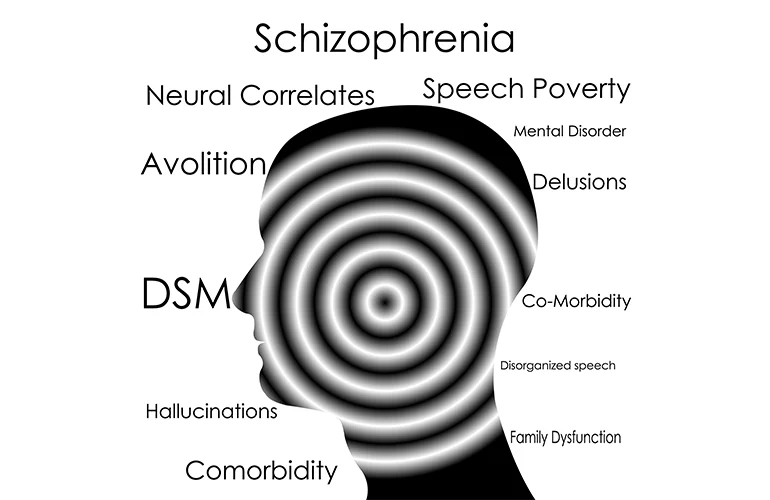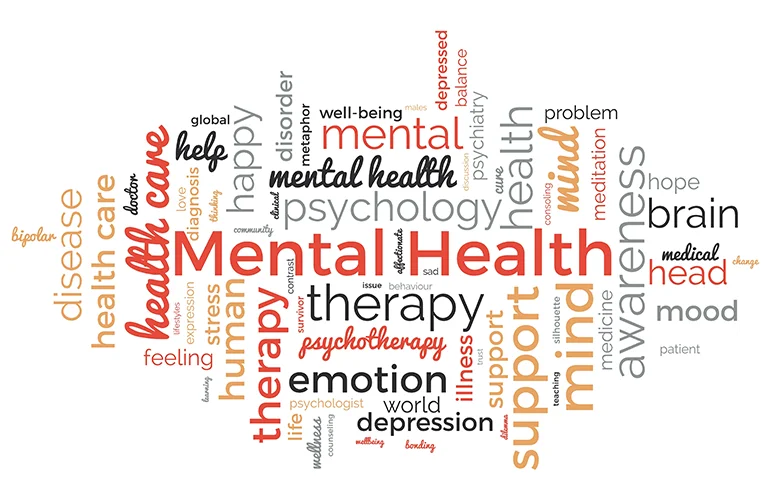Subscribe to get weekly insights
Always stay up to date with our newest articles sent direct to your inbox
Published on 24 Jul, 2025
Updated on 24 Jul, 2025
20 Views
4 min Read

Written by Sejal Singhania
Reviewed by Munmi Sharma
favorite0Like
favoriteBe the First to Like
Ever feel like your thoughts are racing or wonder if your mind is playing tricks on you? That's what living with schizophrenia can be like.
Living with schizophrenia can be challenging, as it often involves confusing thoughts, false beliefs, and emotional disconnection. Despite being one of the most misunderstood mental health conditions, schizophrenia is a complex illness that influences how people think, feel, and act. In this blog, we'll explore the early schizophrenia symptoms, causes, and treatments to support a better quality of life.
Schizophrenia is a chronic and severe mental health condition that affects an individual's thoughts, feelings, and behaviours. It is not the same as a "split personality" or multiple personality disorder. Schizophrenia changes a person's perception of reality, leading to symptoms like hallucinations (perceiving things that aren't there), delusions (false beliefs), disorganised thinking, and unusual or erratic behaviour.
Additionally, it can result in adverse effects such as reduced emotional expression, a lack of motivation, and difficulties in social interactions. If schizophrenia is not treated, it frequently affects your relationships—whether they are professional, social, romantic, or otherwise. It may also lead to issues with organising your thoughts, and you could act in ways that expose you to the risk of injuries or other health problems.

Many people with schizophrenia may not realise they are experiencing symptoms. The early signs can be quite subtle and are often mistaken for other issues, but recognising them is so important for getting help quickly. These symptoms can show up as changes in thoughts, behaviours, and feelings, including:
Positive symptoms of schizophrenia refer to the presence of additional thoughts or behaviours that are not grounded in reality. These are often categorised as psychotic symptoms and may include:
The negative symptoms of schizophrenia refer to the lack of normal behaviours in individuals. This can involve:
Individuals may experience difficulties such as:
Symptoms of schizophrenia in teenagers resemble those in adults, but identifying the condition can be more challenging. Some of them may include:
There is not just one cause of schizophrenia. However, similar to cancer and diabetes, schizophrenia is a real illness that has a biological foundation. Experts believe that schizophrenia can occur for various reasons. Some of these reasons include:
>> Also Read: Why Do You Need Mental Health Insurance?
If not treated, schizophrenia can result in serious issues that impact all aspects of life. Related complications that may arise from schizophrenia include:

The aim of treating schizophrenia is to reduce symptoms and lower the chances of relapse, which is the return of symptoms. Treatment options may involve:
Antipsychotic medications assist in minimising hallucinations, delusions, and disorganised thinking. Take the right medicines to make your mental health stable.
Cognitive behavioural therapy (CBT), social skills training, and family therapy are effective methods for helping individuals manage their challenges.
Groups for support, empathetic friends and family, along with mental health experts, can significantly impact well-being.
Assistance with employment, accommodation, and daily routines frequently becomes a component of the care plan. A consistent environment is essential for recovery.
Pro Tip: Managing schizophrenia typically requires ongoing medication, therapy, and consistent psychiatric support, which can be costly without assistance. This is where a mediclaim policy can significantly help. Care OPD, an add-on benefit under Care Family Health Insurance, where you get 4 general and 4 specialist consultations each year to maintain your mental and physical health with a professional. A solid plan can alleviate financial burdens, ensure ongoing care, and cover hospital stays if needed. Therefore, prioritise your mental health and reduce financial stress with our top health insurance options.
Schizophrenia is a serious, long-lasting mental disorder. Both men and women are equally impacted, with most individuals experiencing symptoms during their teenage years or early adulthood. With proper awareness, timely diagnosis, and ongoing support, those affected can have fulfilling and happy lives. It's time to go past misunderstandings and false beliefs and begin discussing mental health with the knowledge it truly needs. Let's embrace compassion, break the stigma, and create options for healing for all.
Disclaimer: The above information is for reference purposes only. Kindly consult your general physician for verified medical advice. Health insurance benefits are subject to policy terms and conditions. See policy documents for details.
favoriteBe the First to Like
शुगर कंट्रोल कैसे करे? जानें, डायबिटीज में क्या खाना चाहिए Vipul Tiwary in Health & Wellness
Thyroid : मामूली नहीं हैं महिलाओं में थायराइड होना, जानें इसके लक्षण और घरेलू उपचार Vipul Tiwary in Diseases
हाई ब्लड प्रेशर को तुरंत कंट्रोल कैसे करें? देखें इसके उपाय Vipul Tiwary in Diseases
प्लेटलेट्स की कमी के लक्षण, कारण और इलाज क्या है Vipul Tiwary in Diseases
Sudden Infant Death Syndrome (SIDS): The Silent Risk For Babies! Sejal Singhania in Diseases
Is it Only Women Who Get Kidney Infections? Nidhi Goyal in Diseases
Autoimmune Diseases: Hidden Battles Within Nidhi Goyal in Diseases
7 Benefits of Black Pepper You Need to Know Jagriti Chakraborty in Health & Wellness